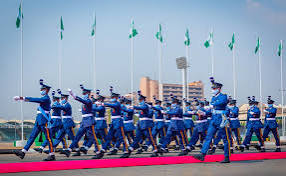Back in April, I created a video on something I’m deeply passionate about: the need for journalists to actively seek out female professionals as expert sources in their stories.
(Video link: https://www.instagram.com/reel/C55MEGmNrHW/?igsh=czF5aGk3MHNlYmdv)
In the video, I shared my personal experience—and that of my colleagues—when covering female lawmakers at Nigeria’s National Assembly. Getting them to speak to journalists was often a challenge—not because they lacked the knowledge, but because of the complex dynamics that came into play when they were asked to step into the media spotlight.
This experience opened my eyes to a bigger issue: the underrepresentation of women as expert sources in the media. We see this across sectors—whether in politics, business, science, or tech. Yet, female voices are essential to balanced and accurate storytelling.
But here is why we need more female experts in the media:
1. Diverse Voices, Better Stories
Including more female experts helps create richer, more well-rounded stories. This is because women bring unique perspectives shaped by their professional and personal experiences.
When reporting from the National Assembly, female lawmakers often approached policy debates differently from their male colleagues—whether discussing healthcare, education, or family welfare. The more diverse voices we hear, the better we understand the issues that affect us all.
2. Breaking stereotypes
The more we see women as experts, the more we normalise the idea that they are not just capable but are leaders in their fields. For too long, media representation has often skewed towards male experts, reinforcing stereotypes about authority and competence.
By intentionally seeking out female professionals to comment on complex issues—whether it’s in politics, science, business, or technology—we challenge these outdated stereotypes and promote gender equality. It sends a powerful message that expertise knows no gender.
3. Inspiring the next generation
Representation matters. When young girls and women see other females as experts in the media, it creates a ripple effect. Seeing women taking up space in traditionally male-dominated fields can inspire future generations to pursue careers in those areas. It signals to them that their voices are not just welcome but needed.
As journalists, we have the responsibility to showcase role models who reflect the diversity of the world we live in. Including more female voices in our stories is one way to do that.
For journalists, the takeaway is simple: we need to do better. Seek out female experts, build relationships with them, and give them the platform to share their expertise. It’s not just about filling a quota—it’s about delivering stronger, more inclusive reporting.
#WomenInMedia #Journalism #RepresentationMatters #NeverSettle





























